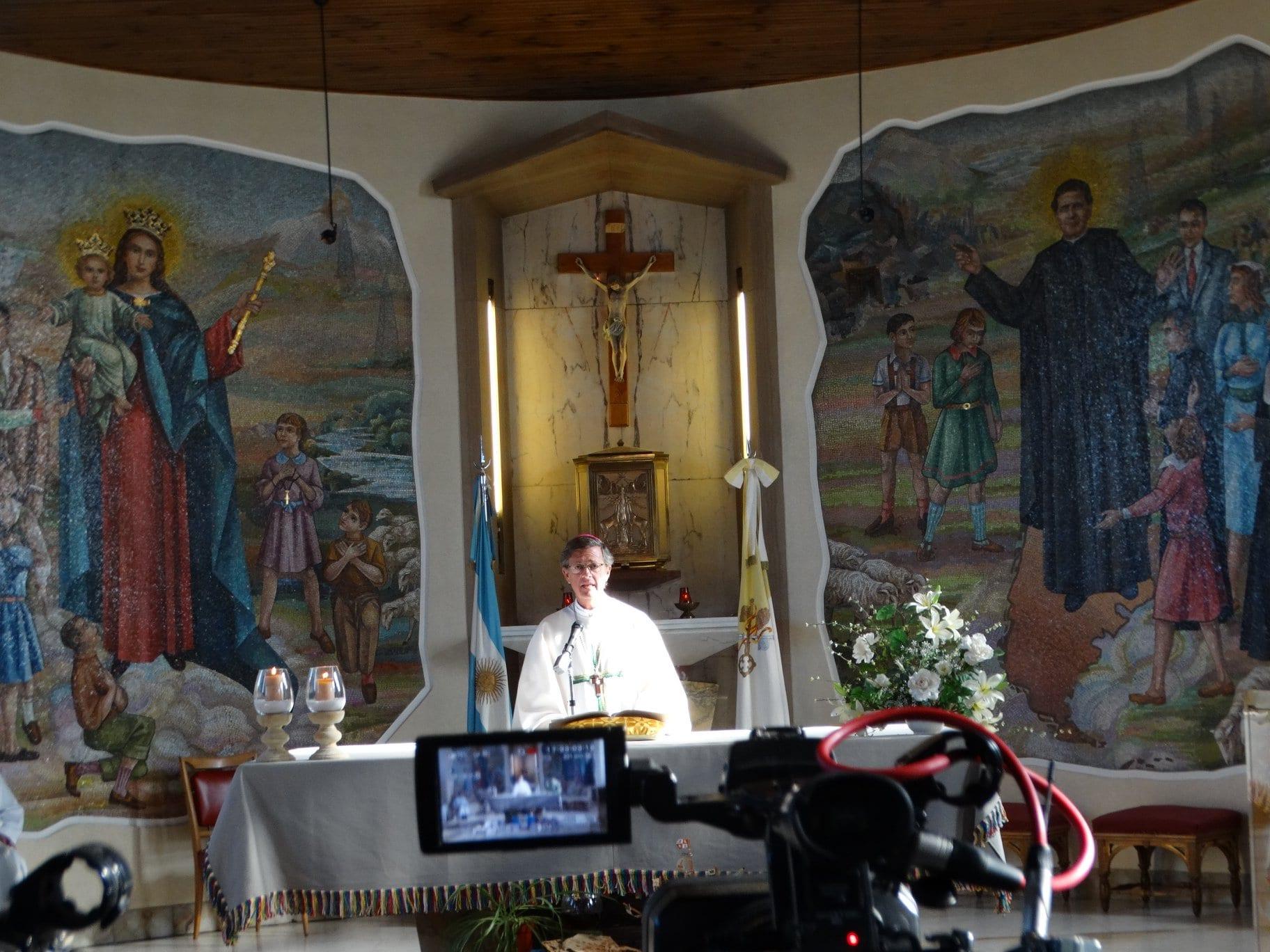ROSARIO, Argentina – There have been varying responses to the COVID-19 coronavirus pandemic in Latin America.
Some in Nicaragua believe that President Daniel Ortega is just the person to fight the advance of coronavirus. In Argentina, the virus has put a damper on the 500th anniversary of the first Mass ever said in the country, and Pope Francis wrote a letter expressing his closeness with his fellow countrymen. While in Chile, priests are being trained so they can minister to people who have the virus.
Nicaragua: Blasphemy in the time of coronavirus
In the past month, dozens of videos showing priests processing with the Holy Sacrament out in the streets have gone viral in social media, with people either accepting the blessing or politely ignoring it. Yet in Nicaragua, when Father Antonio Saballo, from the Managua parish of Corpus Christi, took the Blessed Sacrament out in procession in his neighborhood, pro-Ortega militants verbally attacked him, saying “take that [s**t] out of here.”
Caught on video, those who opposed the procession through the streets of a poor neighborhood are also heard insulting the priest, and saying that “here, that [coronavirus] doesn’t show up.”
As more and more countries close their borders and ask people to remain home, Ortega and his wife, Vice President Rosario Murillo have decided to go in the opposite direction.
Propaganda leaflets sent to Crux via WhatsApp say that “the virus is no rival for Nicaragua, we are a people of God … simply by having the commandant and the companion at the front, we have a KO on the first round.” Another leaflet says that those asking people to stay home “are those who yesterday tried to destroy us and have failed over and over again with their hateful discourse.”
Argentina, an anniversary marked “virtually”
On April 1, Pope Francis’s Argentina marked the 500th anniversary of the first Mass ever said in the country, and the pontiff celebrated it with a letter sent to Bishop Jorge García Cuerva of Rio Gallegos, in southern Patagonia.
In these days when humanity walks “with a sad face” like the disciples of Emmaus, the pope recalled that God “is in our midst encouraging us to keep walking.”
“In these moments when contact is measured and avoided, it is essential that we can remember and learn that Eucharistic feeling that only the Lord can teach us,” Francis wrote. “Let us not let the celebration die down, let us not miss the opportunity to assume and welcome our present as a propitious time of grace and salvation with all the effort that this requires.”
The first Catholic Mass ever said in Argentina was celebrated in 1520 in Port St. Julian, a natural harbor in Patagonia not far from Rio Gallegos.
The local celebration of the anniversary included a prayer vigil and a Mass, both held without a congregation, following the necessary precautions to avoid the spread of COVID-19, which has caused the death of over 42,000 people around the world.
In his homily, García Cuerva asked God that “we regain flavor, desire, enthusiasm, and give it in service our poorest brothers” to build “the civilization of love.”
The bishop also said that in this time of pandemic “the needs of our people seem to multiply and, therefore, the temptation may arise to look the other way; or to lower our sight to the floor.”
Remembering the words of Pope emeritus Benedict XVI he warned that “closing our eyes before our neighbor also makes us blind before God.” For this reason, he encouraged that “our gaze be a reflection of the mercy of Jesus, who continues to choose sinners, [those treated as] disposable in our society.”
In Chile, priests are getting ready to provide spiritual health
On Wednesday, 23 priests from the Archdiocese of Santiago, Chile, received a formation following the recommendations of the World Health Organization to be able to visit, help and accompany those who suffer COVID-19 or who are in isolation as a preventative measure. The plan is to form some 100 priests in upcoming days.
The priests will be visiting private homes, residences for the elderly and hospitals in Santiago.
Father Andres Moro, who coordinates the archdiocesan health ministry said that “we’re preparing ourselves. The hardest moment of the pandemic hasn’t yet arrived, but with these [seminars] we’ll have priests available to accompany in a responsible way.”
According to Bishop Cristian Roncagliolo, auxiliary bishop of Santiago, the priests are receiving a formation with “very high standards of prevention so that they can anoint the infirm and provide spiritual assistance, services that are at the heart of the Church’s mission, reason why it’s so relevant that we form ourselves and be prepared for this contingency in a responsible way.”
“The infirm is not an organism or a machine that is deteriorating, it’s a person,” said Celestino Aos, the Archbishop of Santiago in a video introducing the initiative. “And God gifts us health professionals – doctors, nurses, sanitary personnel – who use all their capacities to care for our bodies. But we also need spiritual help. For this reason, the Church wants to be close to those who are suffering.”
Follow Inés San Martín on Twitter: @inesanma















